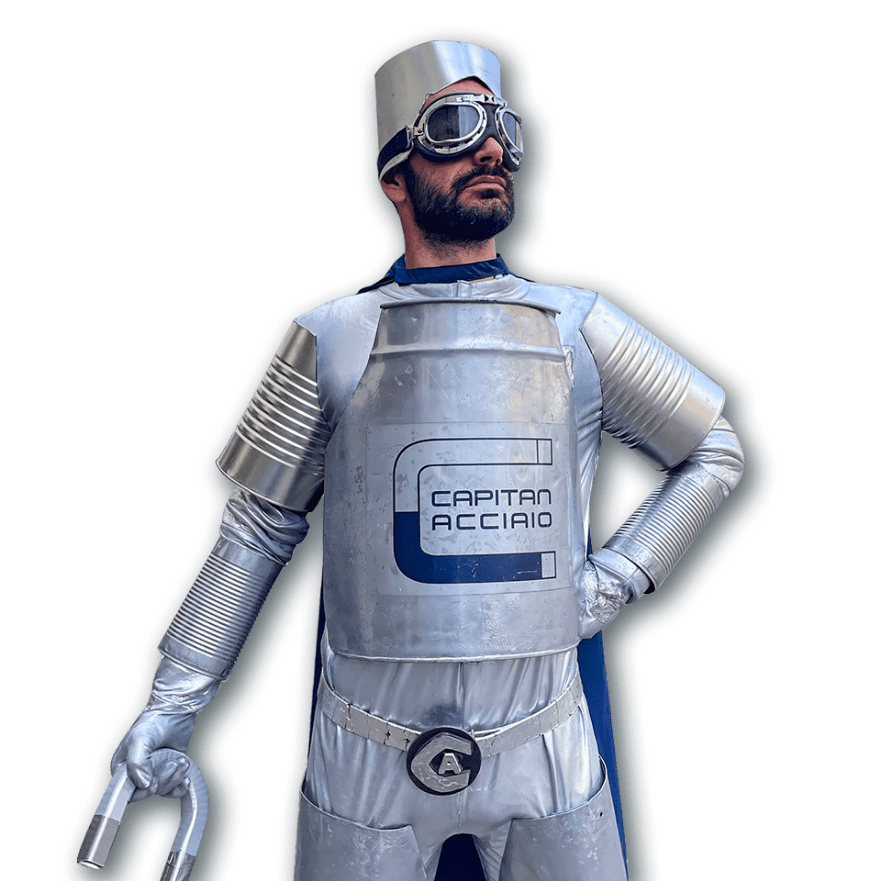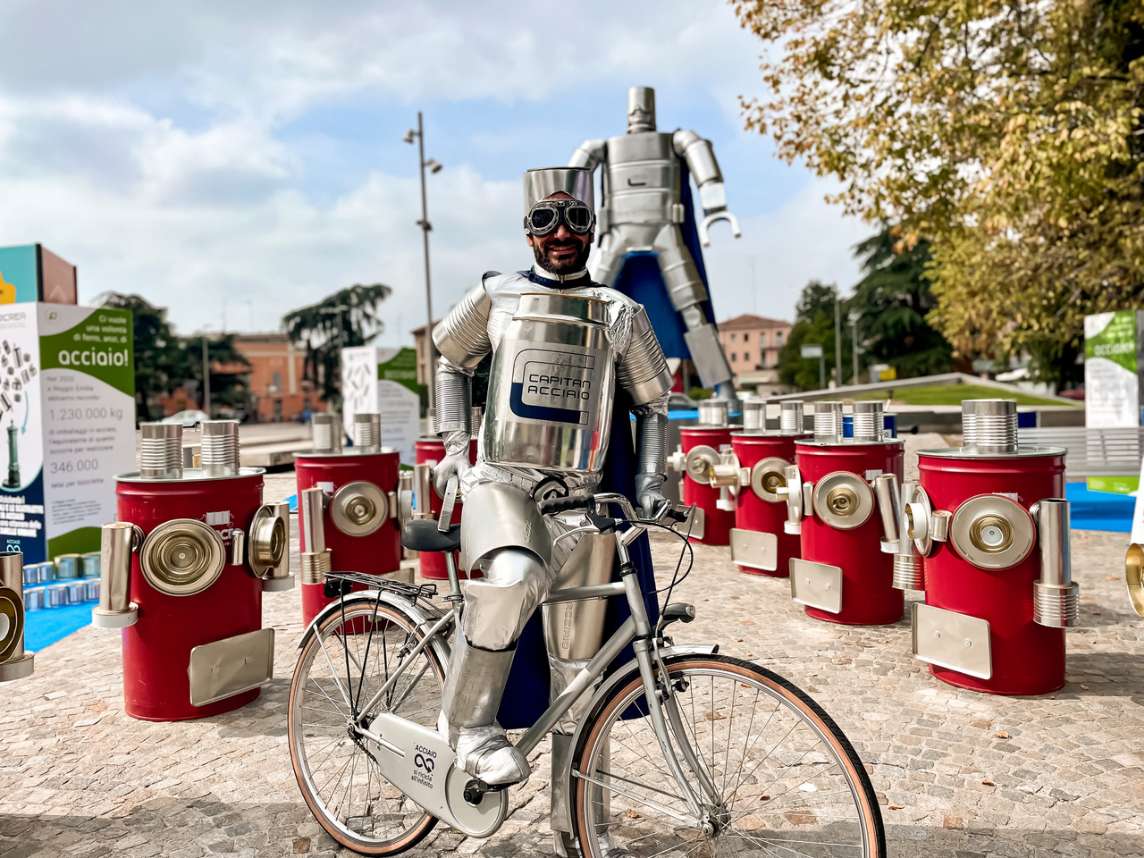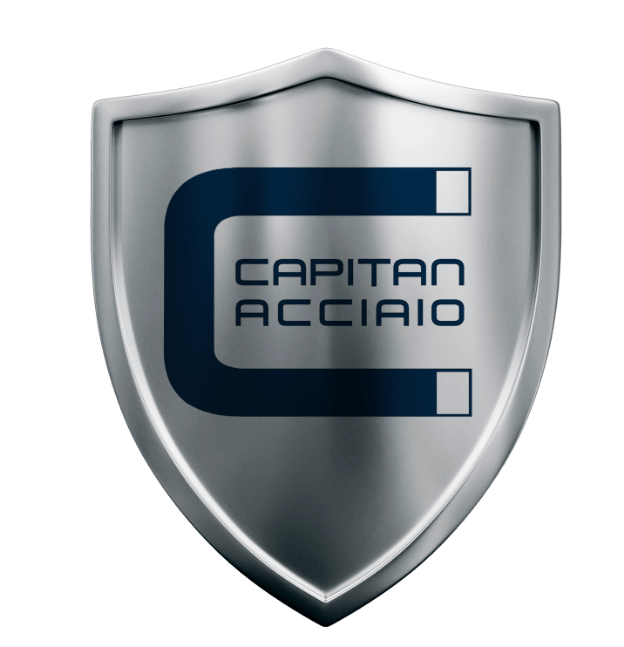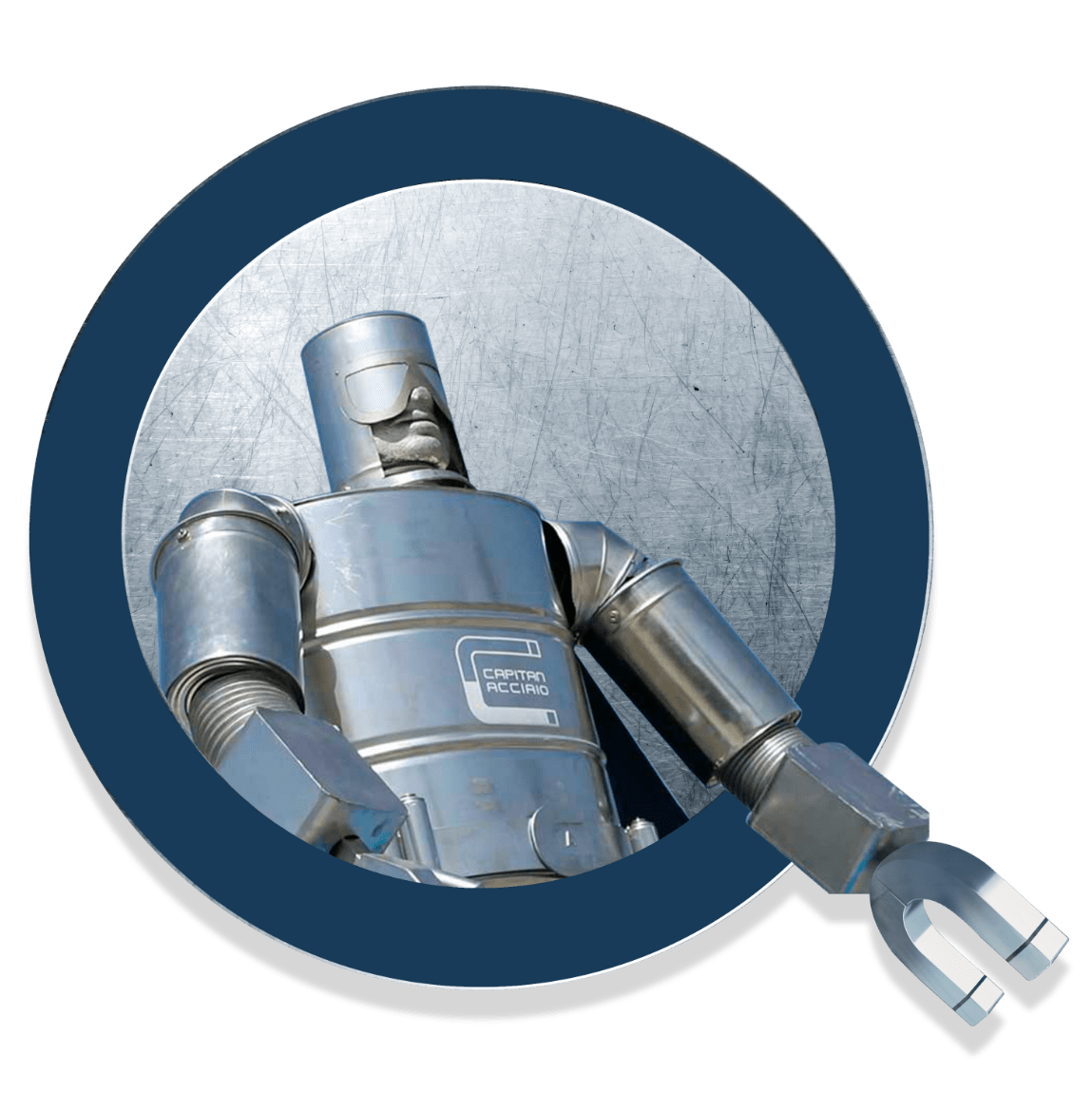When solidarity and sustainability embrace the entire planet: Humana, an international network for development projects and reusing second-hand clothes.

From raw material, to packaging, to recycling, able to be reborn into a new life: 100% recyclable, indefinitely, steel is a perfect example of the circular economy.
Containers made from this valuable material stand out for their well-structured life cycle: a journey that begins in the steelworks, where, from a pure iron-carbon alloy obtained through a process of fusion, it is transformed into semi-finished products for various sectors, including the mechanical, construction, automotive and packaging industries.
Drums and buckets for paints; tins for meat, preserved vegetables and fish products; crown caps; decorative tins for confectionery; aerosol cans... A great many different types of containers are made.
Once they have exhausted their function, after the consumption of the products they contain, they are ready to take on another one, no less important: becoming a secondary raw material (processing scraps from raw materials or materials derived from the recovery and recycling of waste), to be recycled.

RICREA has bet on this fantastic material, with such a hypothetically long life.
But for the steel's journey to begin, it is essential to be able to count on the contribution of citizens, separating their steel packaging at home, and the Municipality, which carries out sorted waste collection services through companies that manage this type of operation.
After being prepared through special operations for cleaning, volume reduction and detinning, and transformed into scrap, the containers can be melted to form semi-finished products, which can be used to make new everyday steel products such as bicycles, benches, and even railway tracks!

Guaranteeing that all the phases of this extraordinary, virtuous circular process have been performed correctly for the last 25 years is the National Consortium for Recycling and Recovery of Steel Packaging, RICREA, which is part of the CONAI system.
This organisation was founded specifically to anticipate, promote and facilitate the collection and recycling of used steel packaging, coming from both the sorted waste collected from citizens and the waste from companies and manufacturing operations.
The Consortium has recycled higher and higher percentages of steel packaging over the years: between the year 2000 and today, in Italy, we have saved an amount equivalent to the weight of 800 Eiffel Towers.
In 2021, the steel packaging collected per capita reached 4.4kg per inhabitant: this result was made possible by the collaboration and joint work of various entities such as municipalities, municipal consortiums, municipally-owned companies, private operators and the associations ASSOFERMET (National Association of Scrap Iron Traders) and FIRI (Italian Federation of Packaging Regenerators), which form a widespread network of companies specialised in the recycling of steel waste and packaging.
RICREA carries out institutional initiatives throughout the national territory to raise awareness, aimed at all citizens, but also to verify collection flows.
Capitan Acciaio and Cuore Mediterraneo are two examples of initiatives to raise awareness.
Capitan Acciaio is an annual road show that travels around Italian cities, focusing on the titular superhero, who allows us to reach, inform and educate adults and children on the waste collection methods present in each Municipality, and the different types of steel packaging and their sustainability characteristics, through activities and creative workshops.
Cuore Mediterraneo is a campaign that travels the beaches of Italy, in collaboration with Legambiente's Green Schooner: a journey of discovery of the habits of Italians, in connection with steel and its collection, combined with comprehensive information on the importance of correct waste separation.

We have also developed targeted projects for environmental education in schools, such as Ambarabà RICICLOclò, RiciClick e Yes I Can. The first focuses on creativity and linguistic ability, inviting primary school children to compose limericks, or short poems. Instead, RiciClick is a photography contest for first year secondary school students, who are asked to take a photo using the RiciClick App. Finally, Yes I Can sees storyteller Luca Pagliari in dialogue with high school students, suggesting points for reflection and inviting them to become more aware and gain a greater sense of responsibility.
We believe that one of the elements the future depends on is social: based on the commitment and growing attention from civil society to activities of waste collection and recycling.
Added to this are the economic element, in relation to the objective value of the recovered material (which for us is steel), and the political and institutional element, which is why we need the involvement of governing authorities, to legislate and regulate, and local administrations, to manage - in cooperation with consortiums - the collection and recycling of used steel packaging.
We follow the recycling and regeneration journey of a material that is extremely important and widespread, but is just one material.
With your help, all materials need to go down a similar route, for as long as possible.

When solidarity and sustainability embrace the entire planet: Humana, an international network for development projects and reusing second-hand clothes.
A unique tool, online and free, for mapping and spreading awareness of Italian businesses that use sustainable economic systems.
